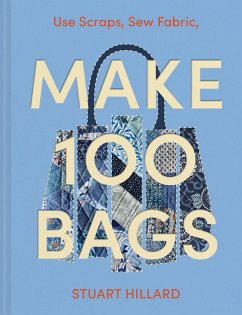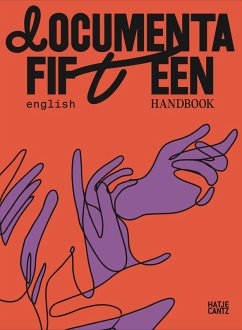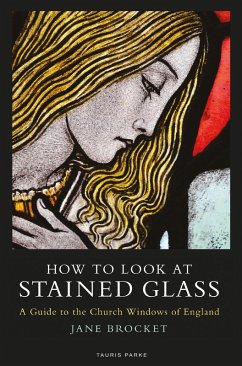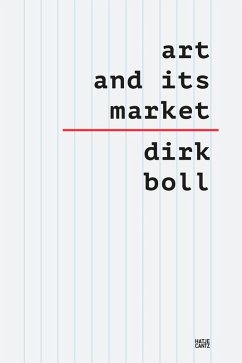
Patchwork (eBook, ePUB)
Essays & Interviews on Caribbean Visual Culture

PAYBACK Punkte
8 °P sammeln!
The patchwork is an apt metaphor for the region not only because of its colourfulness and the making of something whole out of fragments but as an attempt to make coherence out of disorder. The seeking of coherence was the exact process of putting together this book and foregrounds the process of Caribbean societies forging identity and identities out of plural and at times conflicting and contested groups that came to call the region home.Within the metaphor of the patchwork however is the question, where are the vernacular needlework artists within the visual art tradition of the Caribbean? ...
The patchwork is an apt metaphor for the region not only because of its colourfulness and the making of something whole out of fragments but as an attempt to make coherence out of disorder. The seeking of coherence was the exact process of putting together this book and foregrounds the process of Caribbean societies forging identity and identities out of plural and at times conflicting and contested groups that came to call the region home.
Within the metaphor of the patchwork however is the question, where are the vernacular needlework artists within the visual art tradition of the Caribbean? The introduction sets out to both clarify and rectify this situation, and several common themes flow through the following essays and interviews. Themes include that that the land and colonization remain baseline issues for several Caribbean artists who stage and restage the history of conquest and empire in varying ways. That artists in the region amalgamate as part of their practice and seem to prefer an open-endedness to art making as opposed to expressing fidelity to a particular medium. That artists and scholars alike are dismantling long-held perceptions of what Caribbean art is thought to be, and are challenging boundaries in Caribbean art.
These are among the issues addressed in the book as it looks at ecological concerns and questions of sustainability, how the practices of the artists and their art defy the easy categorization of the region, and the placement of women in the visual art ecology of the Caribbean. The latter is one of the most contested areas of the book. Readers should come away with the sense that questions of race, colour, and class loom large within questions of gender in the Jamaican art scene and that the book, dedicated to Sane Mae Dunkley, aims to insert vernacular needleworkers into the visual art scene in both Jamaica and the larger Caribbean.
Audience will include researchers and scholars of Caribbean and African diasporic art, college students, those interested in post-colonial studies, Caribbean artists, art professionals interested in a wider, globalized view of contemporary art; students curious to know about the many phases of art production throughout the Caribbean. General readers interested in the culture of the region.
Within the metaphor of the patchwork however is the question, where are the vernacular needlework artists within the visual art tradition of the Caribbean? The introduction sets out to both clarify and rectify this situation, and several common themes flow through the following essays and interviews. Themes include that that the land and colonization remain baseline issues for several Caribbean artists who stage and restage the history of conquest and empire in varying ways. That artists in the region amalgamate as part of their practice and seem to prefer an open-endedness to art making as opposed to expressing fidelity to a particular medium. That artists and scholars alike are dismantling long-held perceptions of what Caribbean art is thought to be, and are challenging boundaries in Caribbean art.
These are among the issues addressed in the book as it looks at ecological concerns and questions of sustainability, how the practices of the artists and their art defy the easy categorization of the region, and the placement of women in the visual art ecology of the Caribbean. The latter is one of the most contested areas of the book. Readers should come away with the sense that questions of race, colour, and class loom large within questions of gender in the Jamaican art scene and that the book, dedicated to Sane Mae Dunkley, aims to insert vernacular needleworkers into the visual art scene in both Jamaica and the larger Caribbean.
Audience will include researchers and scholars of Caribbean and African diasporic art, college students, those interested in post-colonial studies, Caribbean artists, art professionals interested in a wider, globalized view of contemporary art; students curious to know about the many phases of art production throughout the Caribbean. General readers interested in the culture of the region.
Dieser Download kann aus rechtlichen Gründen nur mit Rechnungsadresse in A, D ausgeliefert werden.













